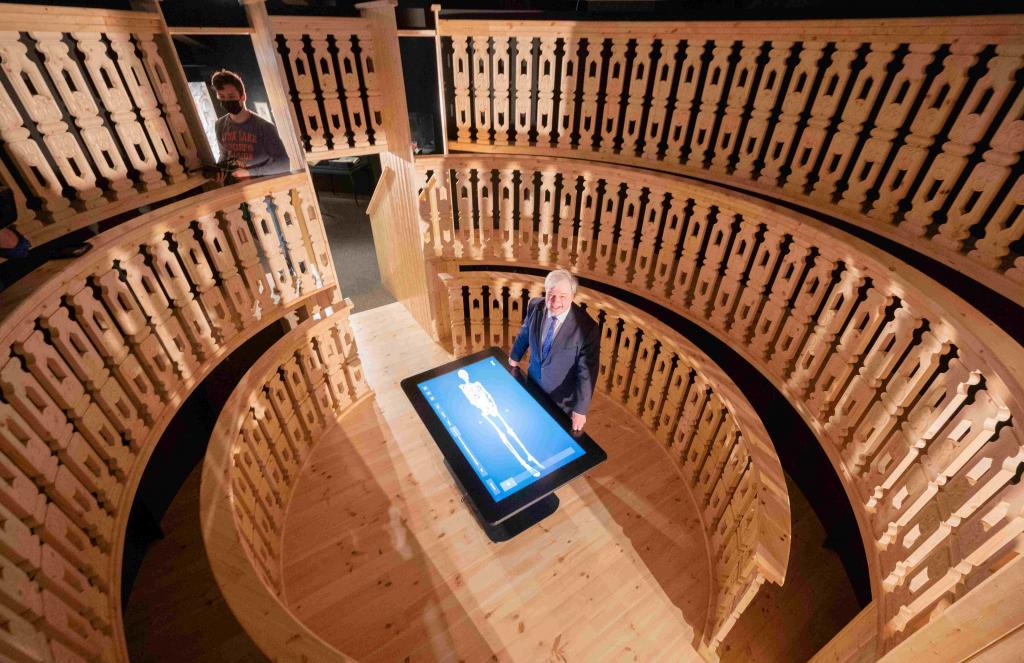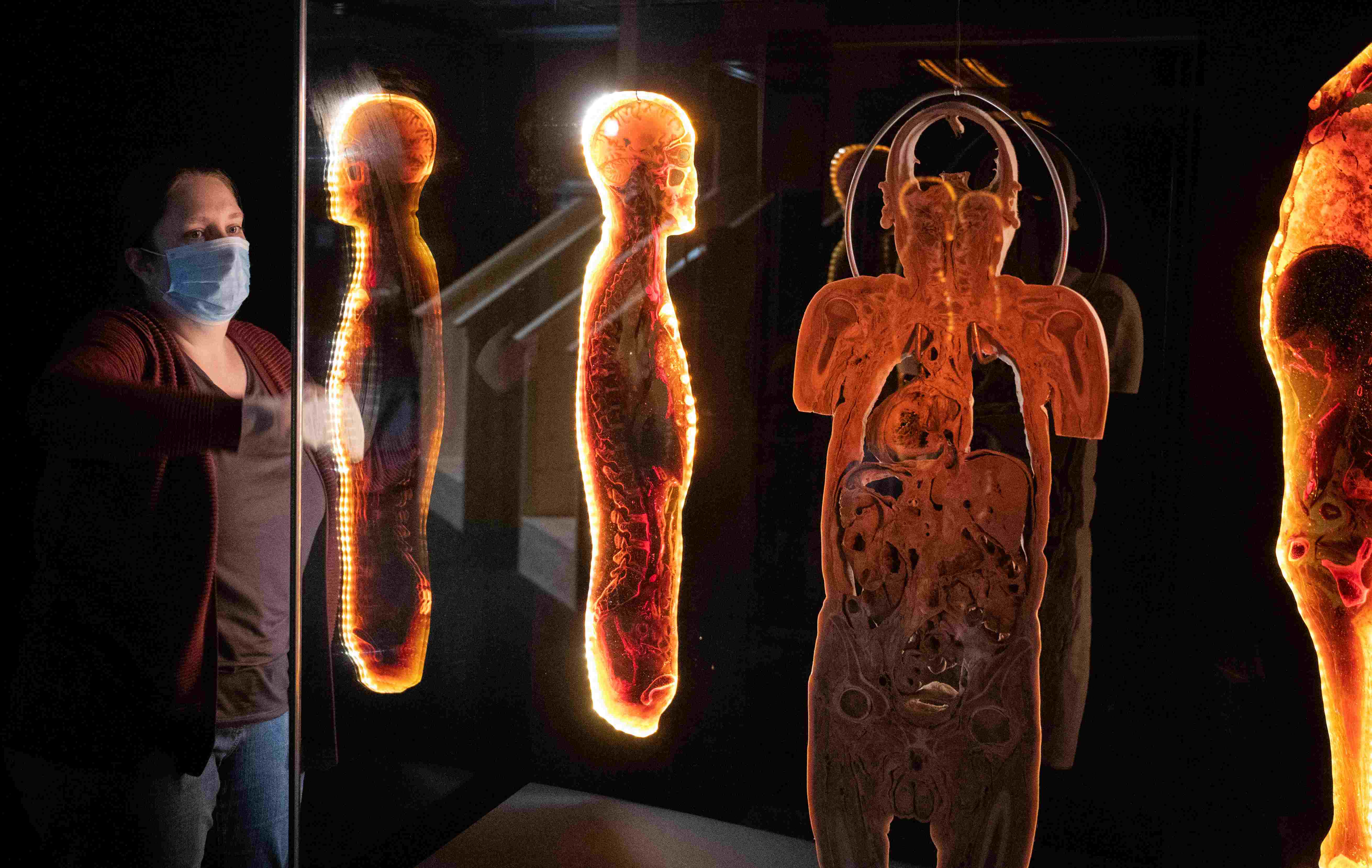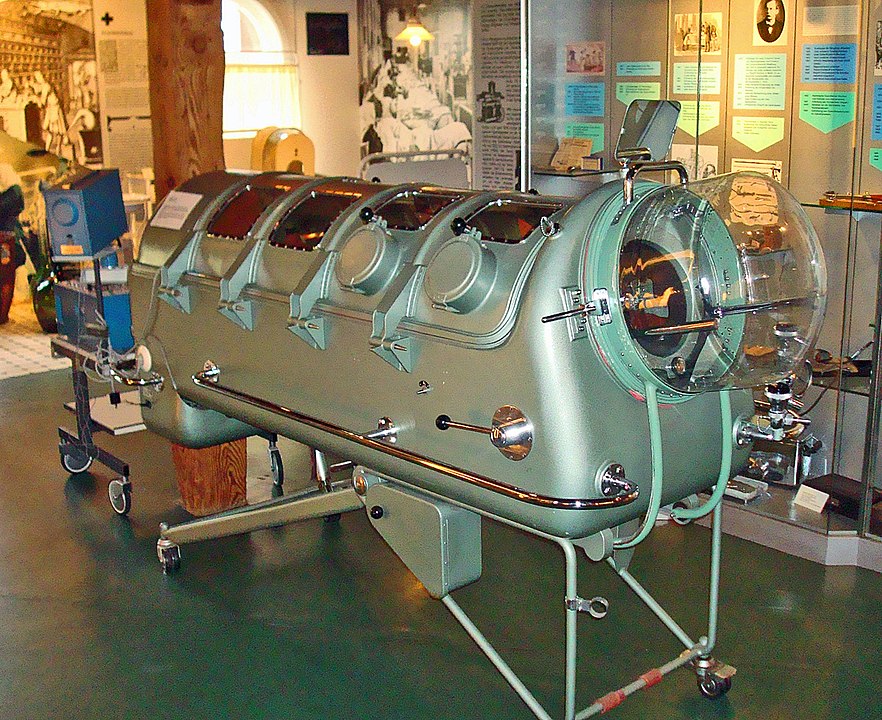Thessaloniki gets ready for its metro launch in November
The underground rapid transit lines have been under construction for almost two decades due to various project delays
 TheMayor.EU logo
TheMayor.EU logo 
Curator Oliver Gauert stands in a replica of the Anatomical Theatre of Padua, Source: Julian Stratenschulte/dpa
The exhibition tells the story of over 30 pandemics, how they started, spread and changed society, science and culture
On 1 October, the exhibition ‘Epidemics. Curse of the Past, Threat of the Future’ will be unveiled in the Roemer- and Pelizaeus-Museum in the city of Hildesheim, Germany. The exhibition tracks the major epidemics in human history, such as the plague in the 14th century, the cholera epidemic in the 19th and the Spanish Flu in the 20th. The exhibits showcase the devastating impact these events can have on society, as well as the breakthroughs in culture and medicine that they have helped create.
 Cross-sections of people, Source: Julian Stratenschulte/dpa
Cross-sections of people, Source: Julian Stratenschulte/dpa
The exhibition is a joint project between the Hannover Medical School and the museum. Lower Saxony Minister President Stephan Weil will give an address at the opening ceremony, to be attended by key medical officials as well. It will be officially open for visitors as soon as 2 October and will close down on 1 May 2022.
Epidemics have claimed more human lives than all wars and natural disasters combined and as such represent the greatest threat to the existence of mankind. Millions of people fell victim to the great plague outbreak of the 14th century, the cholera pandemic in the 19th, the Spanish Flu (Influenza) in the 20th.
Despite the scientific and technological advances humanity has made, the COVID-19 pandemic of the 21st century has still managed to claim 4,5 million lives and counting.
 An Iron Lung, a machine used to assist breathing,
An Iron Lung, a machine used to assist breathing,
mainly cases of polio and botulism will be featured in 'Epidemics',
Source: Hewa on Wikipedia, CC BY 3.0
At the same time, while no one can overlook the sheer amount of human suffering caused by outbreaks, they also lead to profound cultural, societal and scientific advancement. Europe’s plague outbreaks in the late Middle Ages have been credited with anything from jumpstarting the Renaissance to codifying the ‘doctor's’ profession.
The ‘Epidemics’ exhibition is divided into 30 sections, symbolising the 30 chapters in the book ‘Ursprung und Behandlung von Krankheiten: Causae et Curae’ (Origin and Treatment of Diseases: Cause and Cure). It also features 800 exhibits documenting 30 infectious diseases, showing their medical and scientific, as well as their artistic and cultural impact.
Furthermore, the exhibition tells a story of how these pandemics started, the tragedies they caused but also the triumphs of medicine and the social consequences.

The underground rapid transit lines have been under construction for almost two decades due to various project delays

Now you can get your wine in Talence by paying directly in Bitcoin

That’s because the state has to spend money on updating the railway infrastructure rather than subsidizing the cost of the popular pass

Rethinking renewable energy sources for the urban landscape

The examples, compiled by Beyond Fossil Fuels, can inform and inspire communities and entrepreneurs that still feel trepidation at the prospect of energy transition

Now you can get your wine in Talence by paying directly in Bitcoin

The 10th European Conference on Sustainable Cities and Towns (ESCT) sets the stage for stronger cooperation between the EU, national and local level to fast track Europe's transition to climate neutrality.

At least, that’s the promise made by the mayor of Paris, Anne Hidalgo

The underground rapid transit lines have been under construction for almost two decades due to various project delays

At least, that’s the promise made by the mayor of Paris, Anne Hidalgo

Hostal de Pinós is located in the geographical centre of the autonomous region

Despite its church-y name, the district has long been known as the hangout spot for the artsy crowds

Urban dwellers across the EU are having a say in making their surroundings friendlier to people and the environment.

Forests in the EU can help green the European construction industry and bolster a continent-wide push for architectural improvements.

Apply by 10 November and do your part for the transformation of European public spaces

An interview with the Mayor of a Polish city that seeks to reinvent itself

An interview with the newly elected ICLEI President and Mayor of Malmö

A conversation with the Mayor of Lisbon about the spirit and dimensions of innovation present in the Portuguese capital














